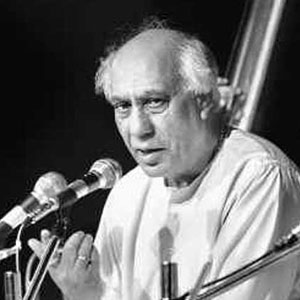Dhrupad is a form of music that is meant to bring the mind to a peaceful, meditative state. It's an ancient science of sound and music that aim to develop human consciousness and the corresponding nervous system. It is the original form of Indian classical music and has been retained in its pure form to date by succsessions of masters. Hence, it also forms a major part of the Indian cultural heritage. Like other great sciences of old India, as for instance Yoga or Ayurveda, it is a powerful tool for life improvement.
History
The form and concept of Dhrupad, with its particular way of developing a composition, came about around 1100 - 1200 AD, though its origin can be traced back to the Vedas. Dhrupad is a form of Gandharva Veda, the Vedic science of music, which again is a branch of Sama Veda. Although the original text of Gandharva Veda, which contained 3000 verses, have been lost, Vedic knowledge is primarily an oral tradition, of which Dhrupad is an integral part.[1]
By the eleventh Century Dhrupad music had crystallised into a perfect form which has retained its original structure and purity through to the present day. One significant characteristic of Dhrupad is the emphasis on maintaining purity of the Ragas and the Swaras. According to some accounts, Dhrupad was sung in the temples, the singer facing the divinity. From this early chanting, Dhrupad evolved into a sophisticated classical form of music.[2]
language of Dhrupad
The language of Dhrupad changed from Sanskrit Brij Bhasha some time between the 12th and the 16th century. About six centuries ago, Dhrupad came to be patronised by the royal courts and its complex rendering became intended for highly sophisticated royal audiences. The compositions became more secular. Some were written in praise of the emperors; others elaborated on music itself. However the pristine nature of Dhrupad survived and even today we hear this majestic form of music performed like it was more that 500 years ago in the royal courts of the emperors and kings of India.





